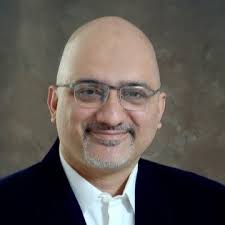Raza Abbas
Raza is a global career development practitioner based in Karachi, Pakistan.
What drew you to a career in career development?
My journey began as a student at The University of Arizona. I volunteered at the Career Services Centre, facilitating workshops and coaching students. That early experience planted a seed of purpose. After graduating, I returned to Pakistan in 2006 with a global outlook and a mission: to bring international best practices into our local systems and empower Pakistani youth with meaningful career pathways.
What does your work involve today?
I wear many hats - career coach, trainer, consultant, advocate. I design and lead career development interventions across schools, colleges, vocational institutes, NGOs, and ministries. I've consulted on creating career development centres and trained aspiring entrepreneurs. On most days, I meet 4-6 clients virtually or in person, and work on projects, advocacy, and research across national and international platforms. I also host dialogues with students and their parents to build awareness about the value of early, inclusive career education.
What are some of your proudest achievements?
Receiving the NCDA International Career Practitioner Award in 2019 and the Asia Pacific Career Development Association’s Outstanding Career Practitioner Award in 2017 were both deeply humbling. I was also selected for the UN High-Level Meeting on Peacebuilding and UNESCO’s entrepreneurship education summit in Asia. But the real achievement is seeing people from marginalised communities discover hope, self-belief, and opportunity through career development.
What challenges have you faced?
Working in a developing country brings significant hurdles - fragile economic structures, limited funding, and a lack of trained professionals. I’ve overcome these by building coalitions, working with philanthropists and community leaders, and embracing digital platforms. Even when funding limited travel to conferences, I adapted, presenting virtually and maintaining global engagement through resilience and creativity.
What motivates your work?
Career guidance, when given early, can change not just lives, but entire families' futures. That belief is my north star. I'm driven by the idea that a single intervention can set someone on a more empowered, sustainable, and hopeful path. I also draw strength from working with marginalised communities, where career development becomes a tool for justice.
What’s your personal philosophy?
Integrity, hope, continuous improvement, and inclusion-based practice guide everything I do. I believe career development must be contextual, evidence-based,and transformative. I also believe in collective synergy - working across cultures, disciplines, and borders to create real change.
What is your favourite career development theory?
Planned Happenstance Theory. It aligns beautifully with how I see career development - embracing uncertainty, being open to possibility, and allowing unplanned momentsto shape a meaningful direction.
Who has inspired you?
I’m a learner by nature. I take inspiration from everyone - clients, colleagues, mentors, students. I don’t believe in a hierarchy of wisdom; we grow together.
What does leadership in this field mean to you?
It’s about visibility, action, and courage. I currently serve on several global platforms, including the International Board of Directors for IAEVG. I also initiated a YouTube channel during the pandemic to spotlight career experts and keep the sector visible when it risked being forgotten. I'm actively advocating for the creation of a UN Careers & Livelihood Day to bring career development into the mainstream policy agenda and affirm it as a human right.
Advice for new professionals?
My advice is to embrace a growth mindset and stay globally connected, as our work is universal. Focus on co-creation, not competition, and centre cultural intelligence, because every context is unique. My final piece of advice is to go the distance to make a difference.
Final thoughts?
Career development is a peace-building tool. It shapes identities, fosters belonging, and empowers people to live with dignity. If we invest in it - boldly, collectively - we can make the world better, one life at a time.

